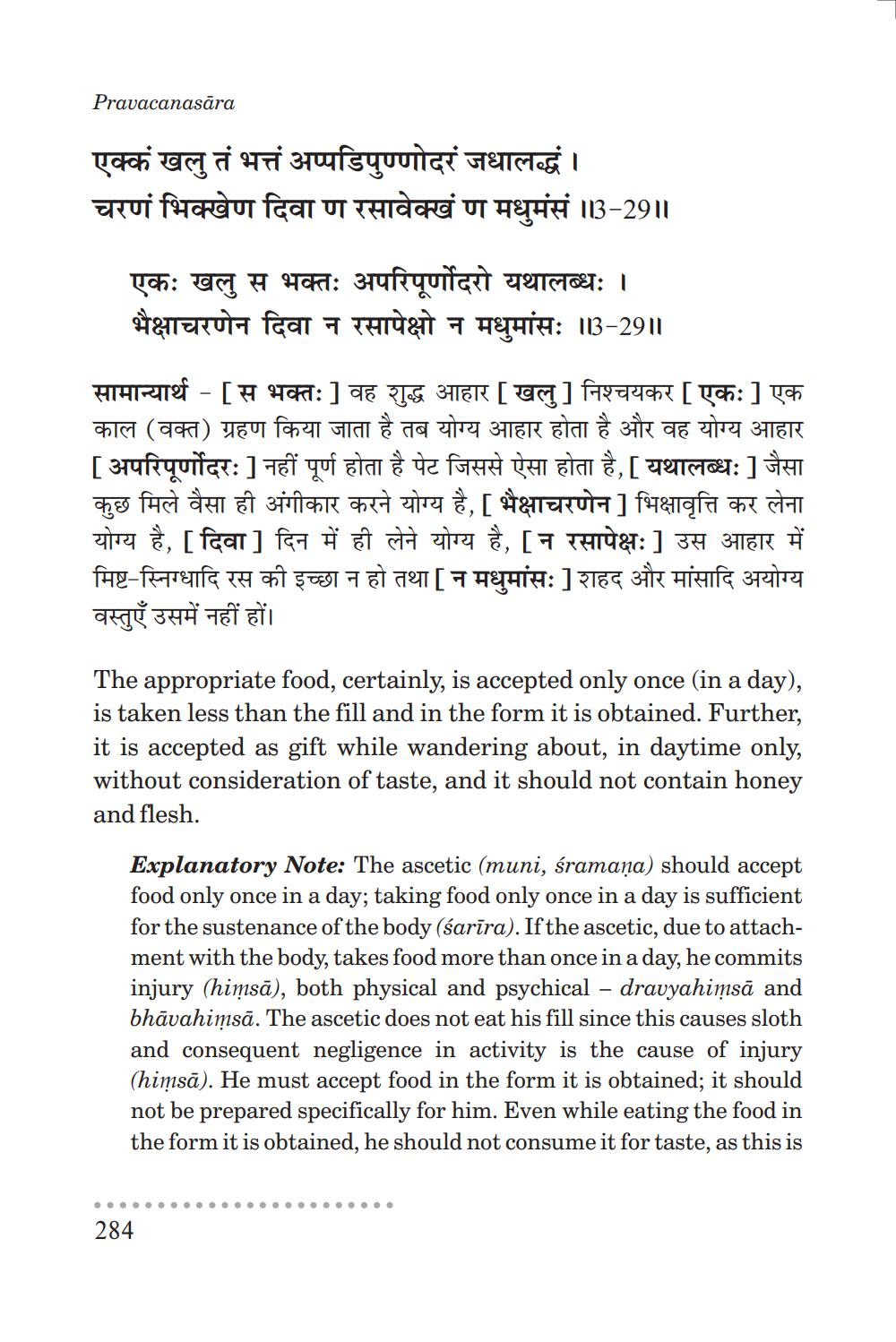________________
Pravacanasara
एक्कं खलु तं भत्तं अप्पडिपुण्णोदरं जधालद्धं । चरणं भिक्खेण दिवा ण रसावेक्खं ण मधुमंसं ॥3-29 1
एकः खलु स भक्तः अपरिपूर्णोदरो यथालब्धः । भैक्षाचरणेन दिवा न रसापेक्षो न मधुमांसः 113-29॥
सामान्यार्थ - [ स भक्तः ] वह शुद्ध आहार [ खलु ] निश्चयकर [ एकः ] एक काल (वक्त) ग्रहण किया जाता है तब योग्य आहार होता है और वह योग्य आहार [ अपरिपूर्णोदरः ] नहीं पूर्ण होता है पेट जिससे ऐसा होता है, [ यथालब्धः ] जैसा कुछ मिले वैसा ही अंगीकार करने योग्य है, [ भैक्षाचरणेन ] भिक्षावृत्ति कर लेना योग्य है, [ दिवा ] दिन में ही लेने योग्य है, [ न रसापेक्षः ] उस आहार में मिष्ट-स्निग्धादि रस की इच्छा न हो तथा [ न मधुमांसः ] शहद और मांसादि अयोग्य वस्तुएँ उसमें नहीं हों।
The appropriate food, certainly, is accepted only once (in a day), is taken less than the fill and in the form it is obtained. Further, it is accepted as gift while wandering about, in daytime only, without consideration of taste, and it should not contain honey and flesh.
Explanatory Note: The ascetic (muni, śramana ) should accept food only once in a day; taking food only once in a day is sufficient for the sustenance of the body (śarīra). If the ascetic, due to attachment with the body, takes food more than once in a day, he commits injury (himsă), both physical and psychical - dravyahimsa and bhavahimsa. The ascetic does not eat his fill since this causes sloth and consequent negligence in activity is the cause of injury (himsā). He must accept food in the form it is obtained; it should not be prepared specifically for him. Even while eating the food in the form it is obtained, he should not consume it for taste, as this is
284




